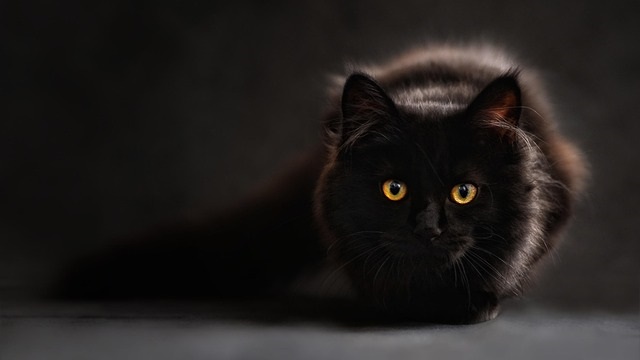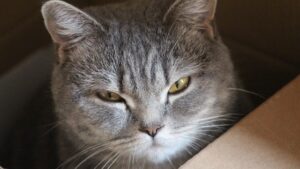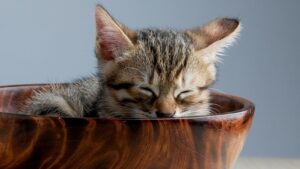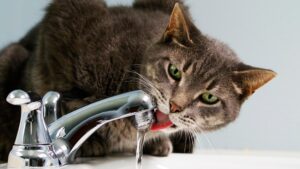Why Does My Cat Walk Around Meowing at Night? Causes and How to Help
Hearing a cat meow at night for apparently no reason can upset owners, but this phenomenon, known as night calling or vocalisation, is not at all uncommon. It’s usually tied with boredom and hunger, but it can also be a sign of an underlying medical issue, especially if it persists and doesn’t seem to abate. If that line has already been crossed and you are asking yourself, “Why does my cat walk around meowing at night?” it may be a sign to take action.
Let’s examine the causes of this behavior, methods for tracking it, strategies to mitigate it, and when to seek professional help.
Key Takeaways:
- Nighttime meowing (or “night calling”) often stems from boredom, hunger, or stress.
- Continuous and persistent vocalization can indicate medical issues like hyperthyroidism, kidney disease, or pain.
- Senior cats may meow at night due to confusion, sensory decline, or feline dementia.
- Consistent routines, evening play, and ignoring attention-seeking meows help reduce the behaviour.
- Tools like Maven Pet provide early health alerts, giving owners peace of mind and better vet insights.
Why Does My Cat Walk Around Meowing at Night?
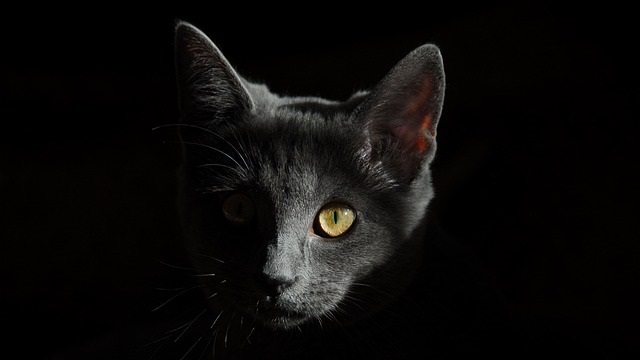
Night-time meowing is when your cat wanders the house in the late hours and won’t stop talking. This night calling is not just any quirk. It usually has an underlying reason, despite our thinking that’s just our feline friends doing their thing. Sure, some are harmless, like boredom, while others can hint at health concerns.
Common Causes of Nighttime Meowing and Pacing
Here are the most common causes of nighttime meowing and pacing in cats.
- Natural body clock: Cats are crepuscular beings, so they are the most active during dusk and early stages of the night and dawn, so they may feel that it’s just the right time to do their patrol or play.
- Could be seeking attention: I am bored, pet me human. Sometimes, that’s all they want to tell us with the night meowing. They don’t care if it’s 3 am. You are here, entertain me.
- Hunger or thirst: If dinner was early or lighter than usual, your cat may remind you that they run on their own schedule. Early morning wake-up calls often translate to “Feed me now.”
- Breed and personality: Some cats are just naturally chattier. Siamese and Orientals, for example, are known to “talk” more than others, and night doesn’t stop them.
- Aging and confusion: Senior cats can develop feline cognitive dysfunction (similar to dementia). They may pace, call out, or seem disoriented at night because darkness makes them uneasy.
- Medical issues: Conditions such as hyperthyroidism, arthritis, dental pain, or high blood pressure can cause cats to become restless and vocal at night. If the meowing is accompanied by other changes, such as weight loss, limping, or not eating, it’s time to visit the vet.
- Stress: A new pet or outside noises are all changes, and cats don’t always positively react to those, so the night meowing and pacing can be their way of responding to those changes.
When Nighttime Meowing Might Be a Sign of Illness
If your cat’s nighttime meowing is new, has changed in tone, has become unusually intense, or you have also noticed changes in the appetite, energy, weight, or bathroom habits, don’t just chalk it up to “being annoying.” It can be a sign of illness, and with the help of a pet health tracker, you can provide the vet enough information during the quick exam that can rule out medical issues and give you peace of mind. Here are some common illnesses that can plague your furry friend:
- Hyperthyroidism – Older cats with an overactive thyroid often become restless, vocal, and even demanding at night. If you also notice weight loss despite a big appetite, it’s worth a vet check.
- Pain or even arthritis – Cats in pain may pace or call out because they can’t get comfortable. Nighttime is quieter, which can make their discomfort more noticeable. Joint pain, such as arthritis, can make every movement more painful. Since cats are naturally more active during these times, this could be the reason for their meowing.
- High blood pressure and kidney disease – Both conditions are linked with increased night vocalization. You might also spot increased drinking or urination alongside the meowing, especially when compared to perfectly healthy cats.
- Feline Dementia – Older cats can become disoriented in the dark, so they may wander and call out for help.
- Sensory loss – The older cats also suffer from vision and hearing loss. It all comes with age. A cat that can’t see or hear well may vocalize more often.
“Every time Umi is hospitalized, it’s for like four days and it costs over $5,000… Maven has helped me not only save money but also save his life”
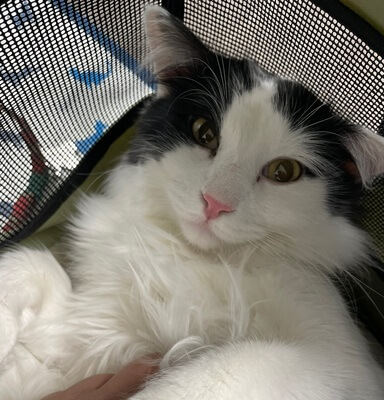
★★★★★
Jessica Ortiz
Umi
Tips to Reduce Nighttime Vocalization
The cat walking around meowing at night is keeping you up, and you want to reduce it? You are not the only one. Here are some of the most effective tips to reduce it:
- Ensure the basics are in place: Ensure food, water, and litter boxes are available before bedtime. Sometimes, night vocalization is simply your cat reminding you of their basic needs.
- Provide entertainment: Bored cats make for noisy cats, so if your cat has things to do while you sleep, such as scratching posts, climbing trees, or treat-dispensing toys that should keep them occupied.
- Clean the litter box: Cats are finicky about their litter box and won’t use it if it’s dirty and smelly. Be sure to scoop up everything and clean the box regularly.
- Ignore the meows: That’s right. Just don’t engage. As tough as it is, don’t get up every time your cat meows. Giving in teaches them that meowing equals rewards, and that’s not the behavior you want to reinforce.
- Ensure the cat had enough playtime before bed: Get ready for a golden rule — a tired cat is a quieter cat. Schedule play sessions in the evening with wand toys, laser pointers, or puzzle feeders so your cat’s energy runs out before you hit the pillow.
When to Consult a Vet
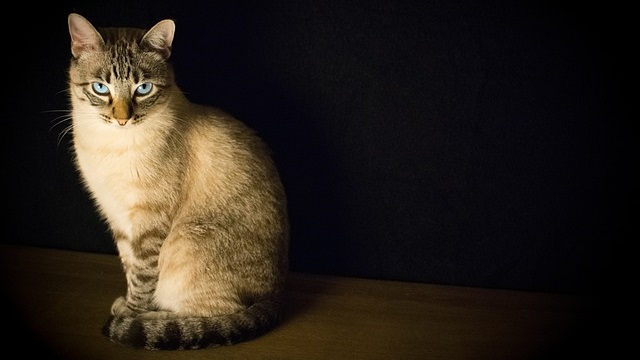
When your cat walks around meowing at night and you just have a feeling it’s not out of boredom, don’t ignore your hunch, especially if that behavior worsens. Here are signs you shouldn’t ignore, and which could lead to the medical conditions we outlined before:
- The vocalization tends to increase suddenly
- Your cat is losing weight or is experiencing changes in appetite
- Litter box habits changed
- The cat feels disoriented or confused
- You notice pain signs, like limping or hesitation to jump
- Other health issues, like vomiting or changes in grooming habits
“Persistent nighttime vocalization can be more than just attention-seeking. It’s sometimes a clue that your cat is in discomfort, anxious, or experiencing age-related changes.” – Dr. Joana Babo, DMV
How the Maven Pet Health Monitor Tracks Nighttime Activity and Behavior Changes
If you are still wondering whether your cat’s nighttime meowing is just “normal” or a clue that something’s off, you already know how much guesswork goes into being a pet parent. That’s where Maven Pet comes into play. It’s not your average cat health tracker. It’s an AI-powered, clinically backed health monitoring system that keeps an eye on your cat 24/7, even when you’re not there.
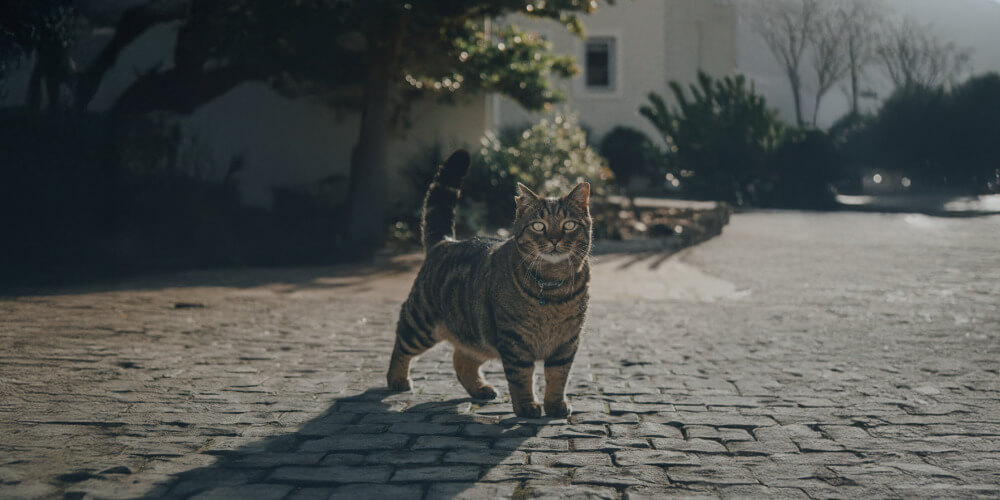
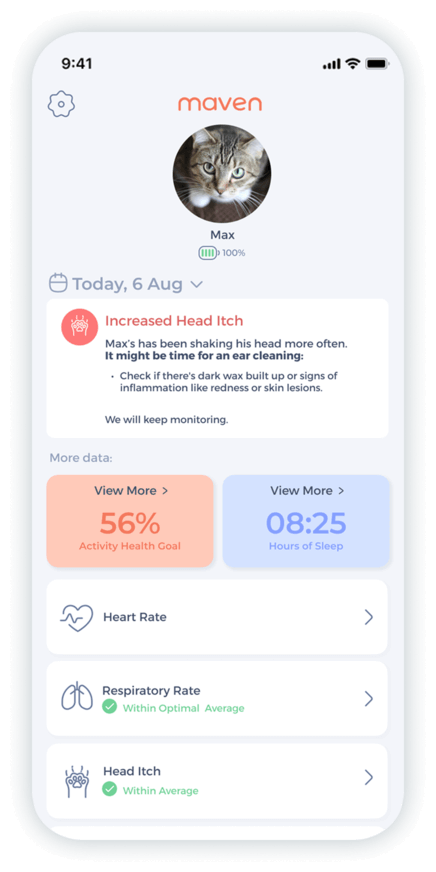
Monitor heart rate, respiratory rate, activity & rest, itch behavior.
Unlike basic activity trackers, Maven’s pet health tracker takes activity, respiratory rate, and even itch behaviours, giving you early warnings you’d likely miss otherwise. The lightweight sensor clips onto any regular collar, so there won’t be a drastic change that could otherwise make your cat fussy. All data is continuously analyzed by an AI trained with veterinary expertise, along with daily summaries for an even better overview.
Conclusion
Nighttime meowing in cats can be frustrating, especially after that long day you had, but it’s rarely meaningless, even if the meaning is just – I am bored, amuse me. There are also hunger and boredom, as well as potential underlying medical conditions, so your cat is always trying to tell you something. It’s up to you to listen.
Smart tools like Maven Pet can help you with that, providing early detection of these ailments and informing you when to consult your vet, so you can protect your cat’s health and finally get some rest yourself.
Maven Pet focuses on improving the quality of life of our pets with technology, using artificial intelligence (AI) to enable proactive pet care. By accurately collecting and monitoring pet data 24/7 and flagging any irregularities, Maven Pet empowers pet parents and veterinarians to stay ahead of potential health issues, ensuring the well-being and longevity of our beloved companions.

